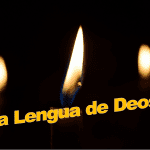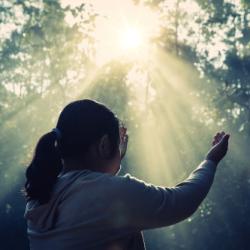As a preacher, it is not lost on me that Trump has committed high treason against this planet and the United States by pulling out of the Paris Climate Accord – just in time for Pentecost Sunday. As I read the lectionary texts assigned for this coming Sunday (especially Acts 2:1-21 and John 20:19-23) in light of this disastrous decision, it’s as if the images of Pentecost have been twisted into some kind of dystopian nightmare. Tongues of fire, the wind of the Holy Spirit, and the very breath of God – all of which have holy significance as symbols of the divine – are tainted by the images of the fossil fuel industry to which Trump is attempting to shackle us.
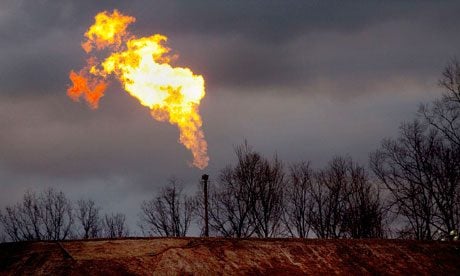
Unholy tongues of fire
The image of the tongues of fire from the Holy Spirit lighting the air above each of the disciples gathered in the upper room of Jerusalem is iconic. It symbolizes the light of knowledge, especially of other languages of cultures.
But Trump seems intent on conscripting us to “tongues of fire” of a wholly different and sinister kind. The flaring of toxic gases at shale gas drilling sites and oil refineries, and the burning of fossil fuels is an unholy fire. This toxic fire is contributing not only dangerous greenhouse gases into the already compromised atmosphere, but also releasing hundreds of toxins such as benzene, naphthalene, styrene, toluene and xylene, all of which cause serious health problems.
And Trump’s middle finger to the rest of the countries that have committed to the Paris Climate Accord is in direct violation of the kind of international cooperation enacted on Pentecost Sunday.
In Acts 2, fifteen countries were listed as among those touched by the wind and fire of Pentecost – the entire known world at the time in the Mediterranean and surrounding continents. Pilgrims from those countries heard their own language spoken by the disciples who were suddenly gifted with the ability to communicate to those visitors in their native tongue. The Paris Accord, which 195 countries signed, could be called a “Pentecost moment.”
But Trump has violated that agreement and sold out not just future generations, but THIS generation that must act NOW to avoid the worst consequences of climate change.
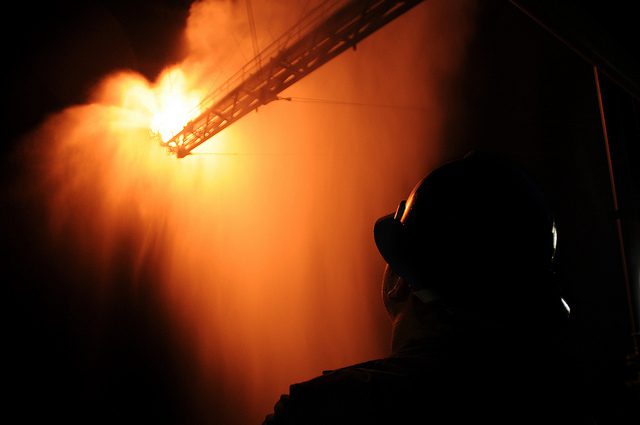
Unholy winds
Wind is another elemental symbol that invokes great power on this day of Pentecost. In a stale room cut off from ventilation, the disciples experienced the fresh air of renewed energy for changing the lives of thousands of people. The disciples received new life and hope through the breath of Jesus forgiving them of their sins after the resurrection, and later from the wind of the Holy Spirit.
But Trump’s decision fuels a different kind of wind with the power to destroy through hurricanes, tornadoes, and other extreme weather events due to climate change. This is not just aberrant changes in weather patterns and anomalies in nature we’re talking about here. “Nature at the end of the twentieth century, as [Bill] McKibben has so cogently argued, can only be understood as a product of human agency. Thus its destructiveness cannot be understood as [divine] judgment but rather as that for which we will be judged,” Catherine Keller states in her essay, “Talk about the Weather: The Greening of Eschatology,” (Ecofeminism and the Sacred, edited by Carol J. Adams, New York: Continuum, 1993).
Unintended consequences for good
Such judgment is not relegated to the divine sphere, however. Cities, states and countries are repudiating Trump’s decision. In fact, the result of Trump’s announcement may have the opposite effect of what he intended.
Because leaders around the world are doubling down on their commitment to transition to a clean-energy future. Businesses are already making their own commitments and enacting changes to mitigate carbon emissions. Utilities are already working on transitioning to serving the needs of their customers in this clean-energy economy. And the level of awareness about climate change has actually gotten an unexpected boost in the last few days since the media coverage about this issues, and about climate change, has been nonstop.
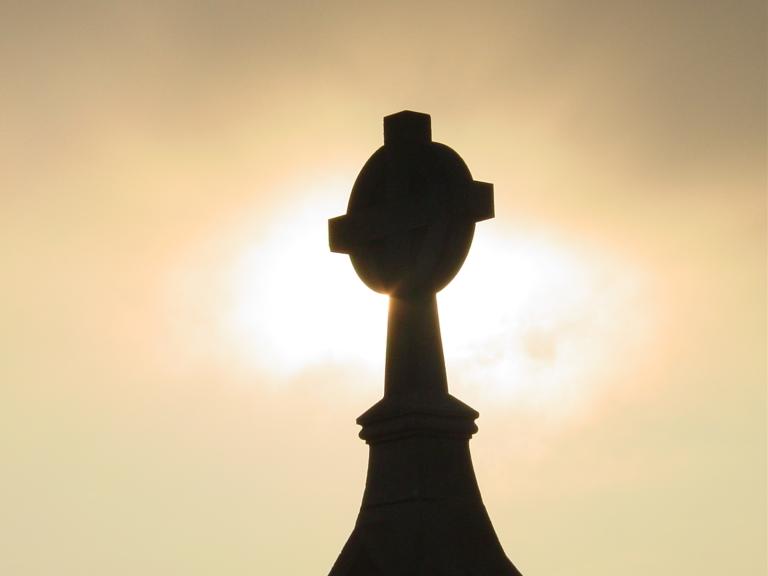
How should the Church respond?
So what is the role of the Christian Church in light of Trump’s decision and the realities of the climate crisis? How can the Pentecost fire that God intends for the illumination of our hearts and minds counteract the fires of burning fossil fuels which created our climate crisis?
This sacred fire of Pentecost has the power to ignite a revolution of justice. It enables a formerly provincial person to suddenly speak to another from a foreign land. It provides light in a place of darkness simply by being a presence there. The wind of the Holy Spirit bears witness to God’s continual efforts of renewal, despite humanity’s relentless imposition of its own will on this planet.
This is a moment when the church must not stand on the sidelines. This is an issue that affects every person on this planet – especially “the least of these” who bear the brunt of the effects of climate change.
And churches are already responding. Statements are appearing from churches and denominations – like tongues of fire across the land. New life is being breathed into community movements as people of faith are joining efforts to combat climate change. When the Holy Spirit says “Heave!” we must respond “Ho!”
What can a preacher say?
The challenge for the preacher will be to help listeners understand that the same Holy Spirit, or ruah (God’s breath) that fills our lungs today is the same ruah that gave life to this planet eons ago. Our insistence on using fossil fuels has led to undoing the best carbon sequestering system God could have ever designed (as theologian Barbara Rossing has put it). The climate crisis is a global, national, state and local issue, and pastors must not only become well-informed and well-read on this topic, they must be bold prophets for justice.
[Chalice Press is offering FREE SHIPPING on my book Creation-Crisis Preaching to help equip clergy and congregations to respond to the climate crisis in light of Trump’s decision to pull out of the Paris agreement. Enter code PARIS17.]
A sermon about climate change need not be all “bad news,” however. There is an opportunity for proclamation about God’s continuing presence and action in our world. All around us blow the winds of the Spirit that (along with other clean forms of energy such as solar and geothermal) have tremendous capacity for creating the energy we need without disrupting the climate system of the planet.
And like the disciples in that upper room, there are more and more individuals carrying the message of forgiveness and hope that comes from the Spirit. The efforts of the few urging us to turn from our ecological sin and embrace Earth-honoring strategies is creating a Pentecost-like moment in human consciousness. “What must we do?” more and more people are asking. And through collaboration and community-building, we are finding innovative answers to that question.
Framing a sermon about climate change
One way to frame a sermon about climate change is to remind listeners that just as the wind from God brought about renewal and a reforming of God’s people in the Bible, so has the Church experienced those same winds of change. The Protestant Reformation was a time of much upheaval but also incredible inspiration (notice the play on words – in-spire, “breath in”) that led to the renewal of faith for generations of Christians to the present day. Lutheran preachers in particular can remind their congregations that as we are celebrating the 500th anniversary of the Reformation this year, the winds of the Holy Spirit are again moving us to renew and reform our faith.
After having laid out the problem of environmental devastation and climate disruption in the first part of the sermon, the second part can share the ways in which the church is seeking to address these issues by calling for a continual re-formation that includes Creation care and attention to ecological justice issues (http://www.lutheransrestoringcreation.org/500th-anniversary-of-the-reformation).
Preachers from other denominations can make reference to the ecotheological work done within their own denominations. A Google search about one’s denomination and “ecology” is bound to result in many links to explore.
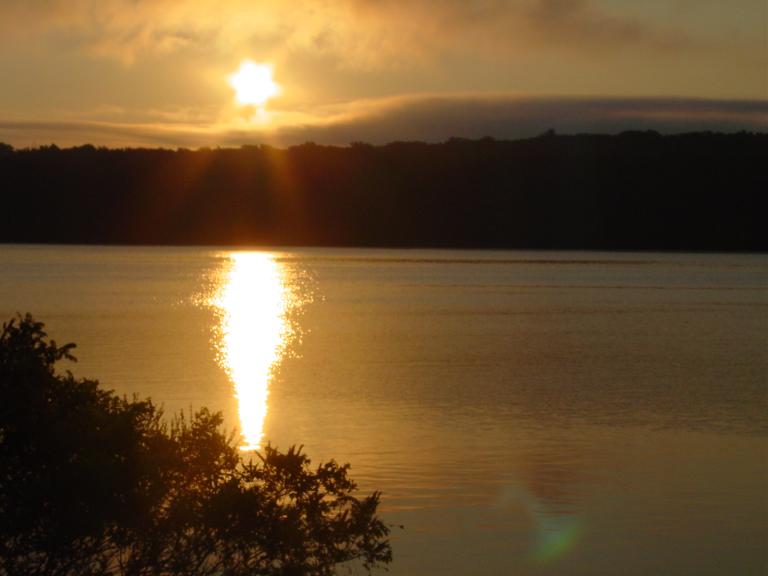
There is still good news!
Make the good news of this renewal real for listeners by highlighting ways that congregations are helping to revitalize themselves and the larger Church with outreach projects such as installing solar panels and creating community gardens (see http://www.thelutheran.org/article/article.cfm?article_id=12519).
The sermon could end by inviting congregants to think about ways in which their own congregation could experience the renewal of the Holy Spirit by incorporating Creation care into their ministry. Challenge them to create a green visioning team to imagine what their church will look like in five or ten years if they throw open the windows and allow the Holy Spirit to blow across their brows, tussle their hair, and fill their lungs with the refreshing wind of new life.
Because no matter what a few individuals decide about disrupting the healing of this planet, we know that the divine fire and wind are illuminating and opening the way for justice and restoration. Let the holy fire burn! Let the winds of peace and justice blow!
Leah D. Schade is the Assistant Professor of Preaching and Worship at Lexington Theological Seminary (Kentucky) and author of the book Creation-Crisis Preaching: Ecology, Theology, and the Pulpit (Chalice Press, 2015). Enter the code PARIS17 at check-out for FREE SHIPPING on the book through Wednesday, June 7, 2017).
You can follow Leah on Twitter at @LeahSchade, and on Facebook at https://www.facebook.com/LeahDSchade/.
Leah will be presenting at the Wild Goose Festival in Hot Spring, NC, July 14 and 15! Her session info is available here: http://wildgoosefestival.org/sessions17-24/. Enter the special code BEMYGUEST for a 25% discount on tickets!


